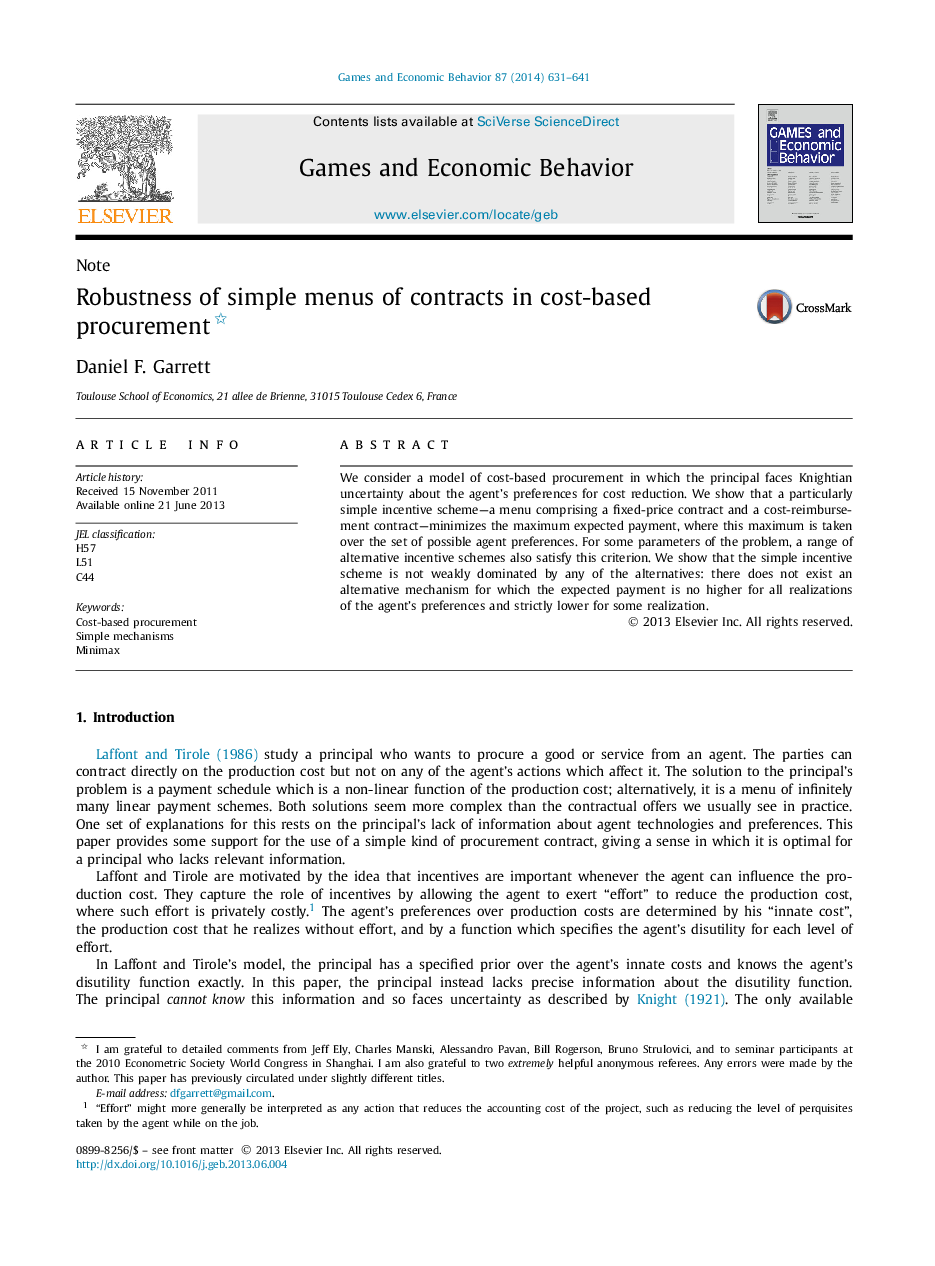| Article ID | Journal | Published Year | Pages | File Type |
|---|---|---|---|---|
| 5071882 | Games and Economic Behavior | 2014 | 11 Pages |
â¢We study a canonical procurement model in which the principal faces ambiguity.â¢A simple menu of contracts minimizes the principal's maximum expected payment.â¢The simple scheme is not weakly dominated.
We consider a model of cost-based procurement in which the principal faces Knightian uncertainty about the agent's preferences for cost reduction. We show that a particularly simple incentive scheme-a menu comprising a fixed-price contract and a cost-reimbursement contract-minimizes the maximum expected payment, where this maximum is taken over the set of possible agent preferences. For some parameters of the problem, a range of alternative incentive schemes also satisfy this criterion. We show that the simple incentive scheme is not weakly dominated by any of the alternatives: there does not exist an alternative mechanism for which the expected payment is no higher for all realizations of the agent's preferences and strictly lower for some realization.
